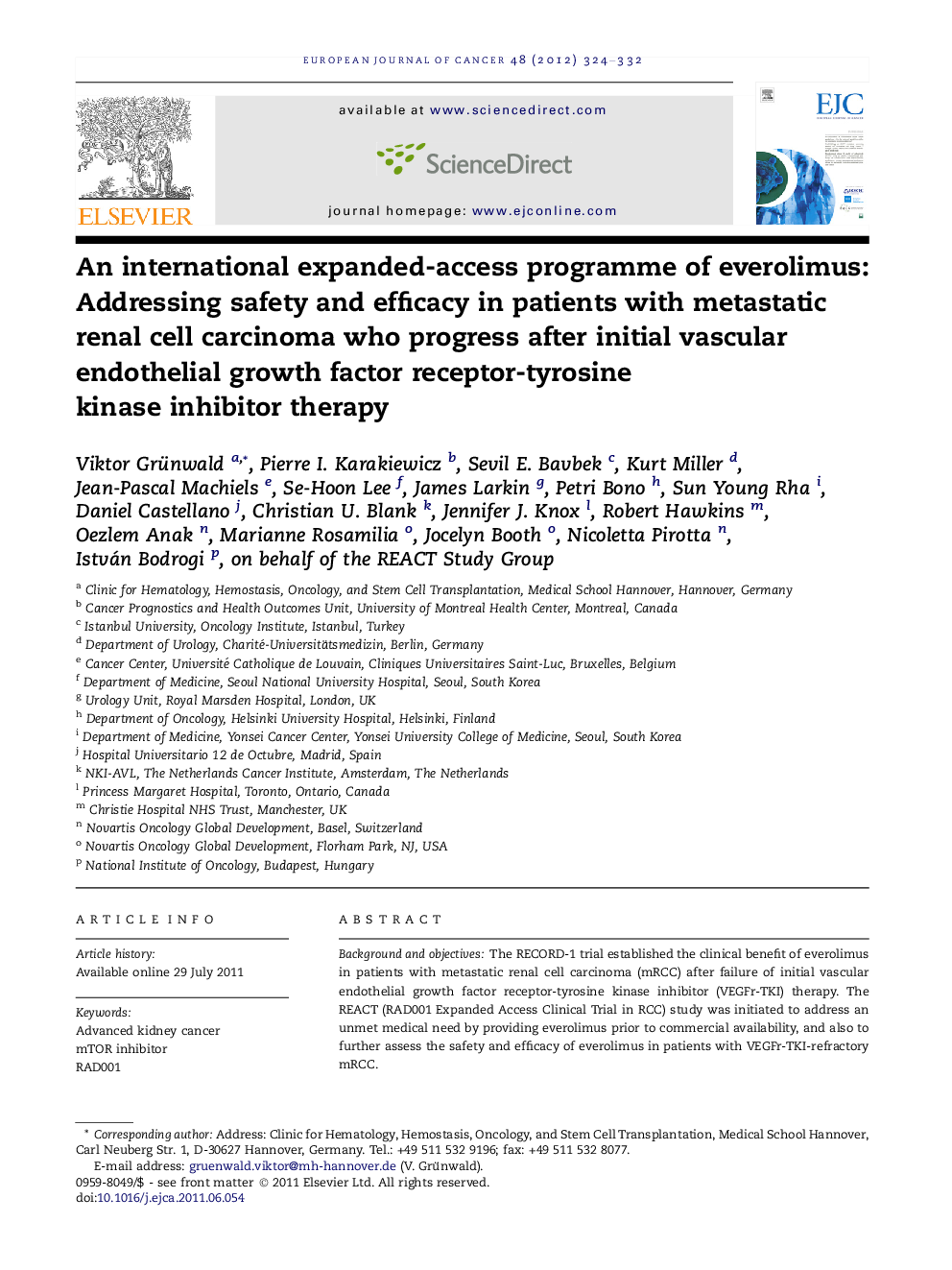| کد مقاله | کد نشریه | سال انتشار | مقاله انگلیسی | نسخه تمام متن |
|---|---|---|---|---|
| 2122360 | 1547171 | 2012 | 9 صفحه PDF | دانلود رایگان |

Background and objectivesThe RECORD-1 trial established the clinical benefit of everolimus in patients with metastatic renal cell carcinoma (mRCC) after failure of initial vascular endothelial growth factor receptor-tyrosine kinase inhibitor (VEGFr-TKI) therapy. The REACT (RAD001 Expanded Access Clinical Trial in RCC) study was initiated to address an unmet medical need by providing everolimus prior to commercial availability, and also to further assess the safety and efficacy of everolimus in patients with VEGFr-TKI-refractory mRCC.Patients and methodsREACT (Clinicaltrials.gov: NCT00655252) was a global, open-label, expanded-access programme in patients with mRCC who were intolerant of, or who had progressed on or after stopping treatment with, any available VEGFr-TKI therapy. Patients received everolimus 10 mg once daily, with dose and schedule modifications allowed for toxicity. Patients were closely monitored for the development of serious and grades 3/4 adverse events (AEs). Response was assessed by RECIST every 3 months for the first year and every 6 months thereafter.ResultsA total of 1367 patients were enroled. Safety findings and tumour responses were consistent with those observed in RECORD-1, with no new safety issues identified. The most commonly reported serious AEs were dyspnoea (5.0%), pneumonia (4.7%) and anaemia (4.1%), and the most commonly reported grades 3/4 AEs were anaemia (13.4%), fatigue (6.7%) and dyspnoea (6.5%). Best overall response was stable disease in 51.6% and partial response in 1.7% of patients. Median everolimus treatment duration was 14 weeks.ConclusionEverolimus is well tolerated in patients with mRCC and demonstrates a favourable risk–benefit ratio.
Journal: European Journal of Cancer - Volume 48, Issue 3, February 2012, Pages 324–332